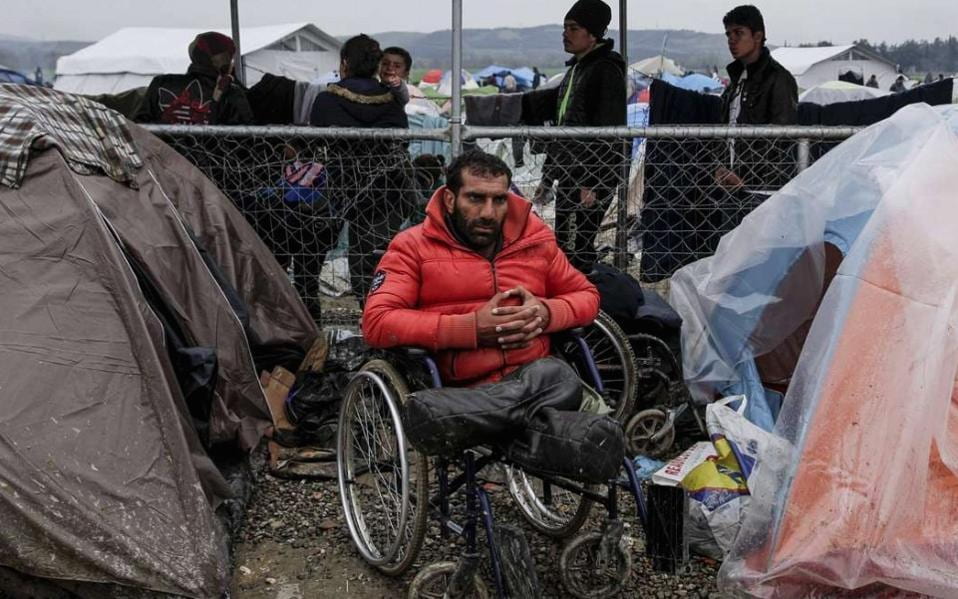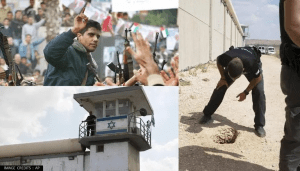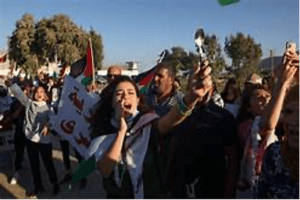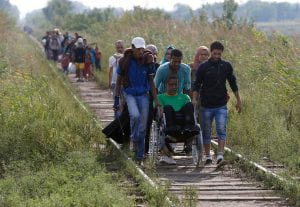
Recently, I was able to witness the refugee camp conditions myself. In July 2017, I traveled to Amman, Jordan, where I volunteered at three refugee camps. Speaking to the refugees and listening to their stories was heartbreaking. Many did not have access to food, water, or medicine unless given to them by various organizations. I also met a few people who were physically disabled due to the conflict; they explained how the current condition of their camp did not help them at all. Many had to escape Syria by foot or crammed in the back of a truck. This is neither safe nor accessible to many disabled persons. Many individuals did not have access to essential resources that we use daily, especially disability-accessible resources. The effects of COVID-19 have only worsened the situation. Since the pandemic began, the UN refugee agency has reported that eighty-four percent of refugees with disabilities cited food insecurity as their biggest concern in Lebanon.
“Too often invisible, too often forgotten, too often overlooked,” is how Light for the World describes refugees with disabilities. With the population of refugees increasing, the concern for their protection and access to resources is left unknown. Refugees and displaced persons are individuals fleeing from war-torn countries, poverty, and hunger. They are often neglected and not provided with the proper care and resources, especially those with disabilities. Many have had disabilities on their way to escaping or were born with some form of disability. In the aftermath of the Syrian war and current conditions in Afghanistan and Haiti, many individuals attempt to flee to find protection and asylum. It’s essential to recognize that many displaced individuals, especially those with disabilities, cannot access the necessities they need to live adequately.
Disabilities within the Displaced Communities
Article one of the Convention of the Rights of Persons with Disabilities (CRPD) classifies that “persons with disabilities include those who have long-term physical, mental, intellectual, or sensory impairments, which in interaction with various barriers may hinder their full and effective participation in society.” It’s been noted that more than sixty percent of Syrian refugee households contain at least one person with a disability. Additionally, it has also been reported that twenty-eight percent of persons with disabilities list illnesses or diseases as the primary cause of their disability. These illnesses are brought by the vulnerable conditions they are living in. Although there have been reports of disabilities from birth, most statements have been stated to have disabilities caused by conflict.
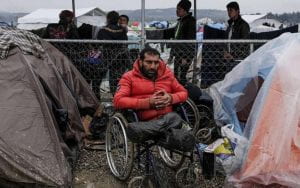
Individuals with disabilities are already a vulnerable group of people, and refugees with disabilities have even less access. Disabled women are the most vulnerable as they experience “psychological, sexual or physical abuse in natural disasters and conflicts.” Organizations such as the Human Rights Watch (HRW) have urged world leaders providing aid to take more action in funding at-risk groups, such as individuals with disabilities. Emina Cerimmovic, a senior disability rights researcher at HRW, stated that even with all the commitments to better reach persons with disabilities, “displaced people with disabilities continue to struggle even to get basic services.” An international call for action is needed to ensure displaced persons with disabilities can access the necessities required to survive.
Conditions of Refugees with Disabilities
It comes as no surprise when learning how fragile and inaccessible conditions in refugee camps are. Most of these camps are created by the displaced persons themselves. World leaders and governments have shown commitment to protecting refugees and displaced people by providing aid, asylum, and new areas to live. However, these support systems do not take the needs of people with disabilities into account.
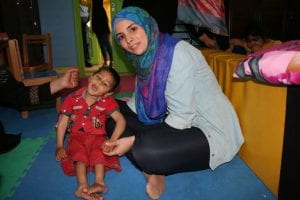
What’s Next?
Assessing the conditions many refugees with disabilities live in and ensuring that their needs are met is imperative. As the situation grows more dire, what can the world do to better the conditions and resources for refugees and displaced persons with disabilities? The main problem is the lack of and slowness of implementation of aid from world leaders. The information of what is needed has been provided to countries around the world and NGOs, but resources are yet to be delivered. The international community needs to provide aid specifically for those with disabilities, accessible camps need to be built, and medical attention needs to be supplied more. NGOs currently operate only under donations, so provisions are limited by a lack of funding.
What Can You Do?
As we have access to many daily necessities such as food, water, disability-accessible bathrooms, and resources, many worldwide do not. It is essential to learn and educate ourselves about the current situations that hinder many lives. Check the resources below to donate or learn about organizations providing aid to refugees and displaced persons with disabilities.
To Donate:
UNHCR Mercy Corps: UNICEF United In Humanity
